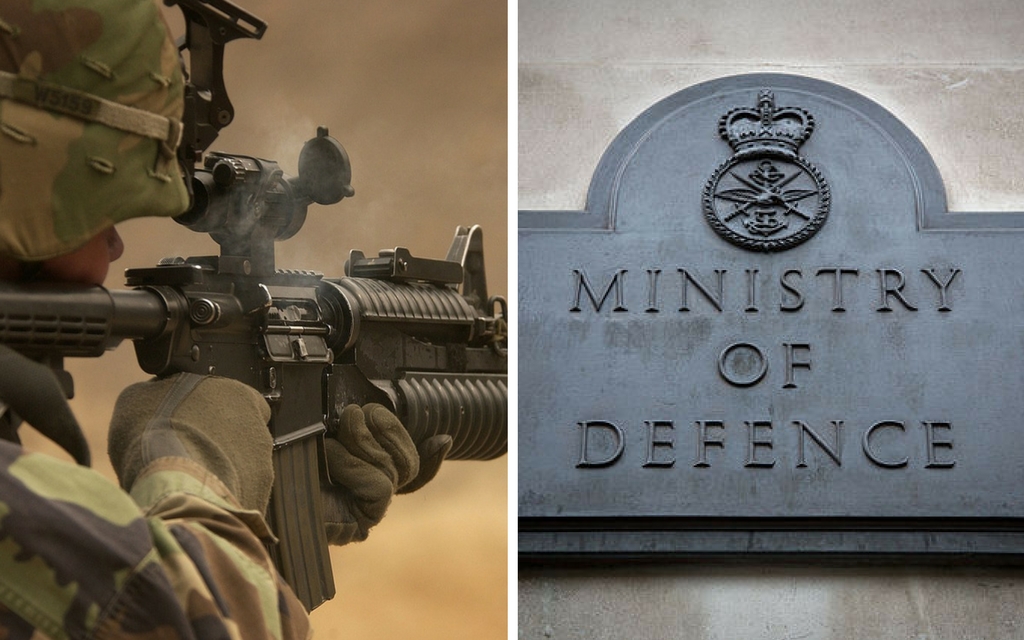On Friday, the Court of Appeal gave its judgment in the Iraq War test case of Al-Saadoon & Ors v The Secretary of State for Defence & Ors. It is an important case about how far the UK’s obligations under human rights laws stretch, and is likely to be controversial for those who say British soldiers serving abroad should be exempt from human rights obligations. Here is a rundown of the key human rights implications of the decision.
This case concerned the claims of a number of individuals (over 1,600) who alleged that they or their family members had been abused by British forces during the 2003 to 2009 Iraq War. The allegations involved fatal shootings, beatings, collisions with army vehicles, and disappearances as well as transfers to the US forces where torture and other serious mistreatment allegedly occurred.
Some sought to compel the Secretary of State for Defence (currently Michael Fallon MP) to open inquiries into these allegations, while others demanded compensation. With the release of Sir John Chilcot’s Iraq Inquiry Report renewed focus has been placed on the war and British involvement in it, making Al-Saadoon a topical case with some important results.
1. When does the European Convention on Human Rights apply to soldiers fighting abroad?

A key question raised was to what extent British soldiers stationed overseas are bound by the United Kingdom’s obligations under the European Convention on Human Rights (ECHR). If the soldiers were bound by the ECHR when in Iraq, then the Secretary of State would probably have to investigate their claims of human rights abuses.
Article 1 of the ECHR states that the UK shall secure the rights and freedoms set out in the ECHR “to everyone within [its] jurisdiction“. The meaning of this phrase has been hotly contested. Although generally this has meant that country’s must protect the rights of people who are within its national borders, over time exceptions to this have developed. The main exception was stated in a case called Al-Skeini that the European Court of Human Rights decided in 2011. This said that British soldiers abroad must uphold people’s rights in the ECHR whenever they are exercising “effective control over an area“.
In its decision, the court said that when British soldiers exercised ‘effective control‘ over an area in Iraq, they have to respect all of the rights in the ECHR. But British soldiers do not have effective control purely by exercising lethal or potentially lethal force. So, for example, where a soldier is outside their barracks or base camp, and they shoot an Iraqi civilian, the ECHR does not apply to them because of this act alone.
2. Does the government have a duty to investigate alleged violations of rights protected by the ECHR?

The court was asked to consider whether the British government had a duty to investigate alleged violations of certain rights protected by the ECHR. The first was Article 3, which among other things requires that prisoners not be forcibly transferred to countries where there is a real risk that they will be tortured. The upshot of the court’s decision was that such an investigation is only required in extraordinary circumstances, such as where there is evidence that the government has instructed the country receiving the prisoner to carry out torture on its behalf.
The second was Article 5, which protects our right to liberty. Once again the court decided that, as a general rule, the government did not have to launch inquiries into allegations that British soldiers infringed upon the liberty of detainees in Iraq. However, it stressed that an investigation will be required if more serious allegations come to light, such as any instance of ‘enforced disappearance’. That is where a person is detained by a country yet the government refuses to acknowledge that detention, leaving the prisoner wholly isolated from the outside world.
3. Convention Against Torture

The claimants also asked if the Convention Against Torture, which the UK signed in 1988, created a duty for the UK to investigate the torture claims. The court said it did not because it has not been incorporated into UK law by legislation. This is unlike the ECHR, which was incorporated into UK law in 2000 by the Human Rights Act, and which makes our rights directly enforceable in UK courts.
This is an important decision that may encourage claims against the British government in respect of human rights violations during the Iraq War. For more detailed commentary, check out the UK Human Rights Blog.
- Read the Court of Appeal’s full judgment
- Read more on the right not to be tortured and the right to liberty
- For more on investigations made possible by the Human Rights Act read here







